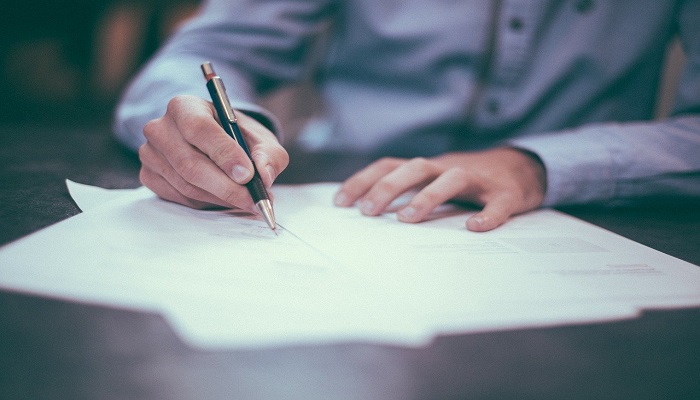Education
How to Get Back to a Study Routine After a Long Break

A year ago, studies were interrupted only by vacations. However, the global pandemic has made its adjustments and has led to the suspension of studies at many colleges and universities. Now tens of thousands of students have learned to study remotely and to find help online, or to write on their own papers on any topic. However, many institutions are returning to the standard system. And students also need to properly enter the learning routine.
A busy schedule, a lot of responsibility, the need to communicate with many people and solve many problems at once, studying at night – the main factors that often put a student in a state of stress. According to the latest report from the Co-SPACE study, many children’s need to learn remotely has caused problems with attention and mental health. To avoid this, you need to gradually enter the training, avoiding a sharp change in pace and fullness of life.
Topical issues that concern people who have had a long break in their studies:
- Where to start?
- How to restore the previous rhythm?
- What steps need to be taken?
- How to switch to the new mode and schedule?
It is often difficult for students who have become accustomed to classes during the holidays to return to the learning process. After all, when free time from lessons becomes only a memory, re-motivation of students can be a real challenge for both teachers and students themselves. Therefore, we have prepared tips for both students and teachers to help re-enter the curriculum.
For Students
The driving force of the educational process in school is the student’s desire to learn. It promotes the development of intelligence and is a major factor in improving the personality as a whole.
To achieve the maximum desire and opportunity to learn, we advise you to take the next steps.
Pay attention to proper nutrition
According to research, on vacation we usually allow ourselves more harmful foods, so the digestive system needs to be restored. Here is an interesting article about nutrition while traveling.
If there are no contraindications, you can seasonally take multivitamins, which help increase the body’s adaptability.
Do not be half-faced, maximize your vacation
While on vacation, try to enjoy your vacation to the fullest. Allow yourself to discard all things related to school: such as textbooks, school assignments or something else. It’s okay to occasionally remember a lesson that fascinated you, but don’t let it make your vacation boring.
Establish a strategy before entering school
Going back to school after a long vacation can be exciting for some and horrible for others. To avoid the second situation, try to make a strategy for your return. Do not return home a day or two before school. Try to give yourself a break after the rest, so you can get used to the atmosphere of the house. Yes, if school starts on Monday, return from vacation on Thursday or Friday. That way, you have plenty of time to rest on the weekends before you finally get back to school. So to prepare even more, start reading small school lessons. Do a warm-up before school.
Remember everything good at school
One way to improve your mood after the holidays is to continue to radiate a positive aura. One of the experts, Enrique, advises trying to remember interesting things you did with friends, teachers or others instead of focusing on the complexity of a topic. Be it joint task performance, joint game, etc. This will increase the desire to return to school.
Enter smoothly
On vacation, you are accustomed to activities that are slow, relaxed and not burdened with lessons or school work, which makes the mind more relaxed. After returning to the school procedure, the body and mind will be unconsciously forced to follow the previous rhythm, which can be fast and tiring. It is important not to let the spirit fall. To avoid this, try not to study too hard, give the mind and body time to recover. When resting, rest properly. Enjoy the fresh air around you and don’t worry about the complexity of math or economics.
Make plans for the next vacation
The holidays are over, it doesn’t mean the world is over. Especially while the earth is still spinning. Think about how fun your vacation was yesterday, and start thinking about other exciting things you could do on your next vacation. Mark a calendar, find a time when you will have even longer vacations and plan them. This way, you will be delighted to study and save money so that you can take another vacation.
For Teachers
Do not repeat the previous program immediately
Often, teachers’ biggest mistake is to immerse themselves in the curriculum of what the children learned before the holidays. Leading psychologists and neurologists recommend an informal approach.
Students are primarily interested in what classmates did during the holidays, rather than a pre-prepared lesson plan, so children should be given time to re-adapt in the team: to communicate with peers and share their impressions of free time.
No essays about vacations
Nevertheless, the story of the holidays should not be a formal part of the learning process, much less be appreciated by the teacher.
Psychologists advise communicating about free time informally, outside the program, primarily verbally, and to give children the task to write an essay like “How I spent the summer” or “How I met the New Year” will only prevent the teacher to set students up for learning.
Short-term goals
Allow students to set their own short-term goals. It’s not about big ambitions, it’s about small achievements: from improving grades in specific subjects to reading a certain book. If the child chooses a goal, it will make it easier to get used to the learning process.

















































